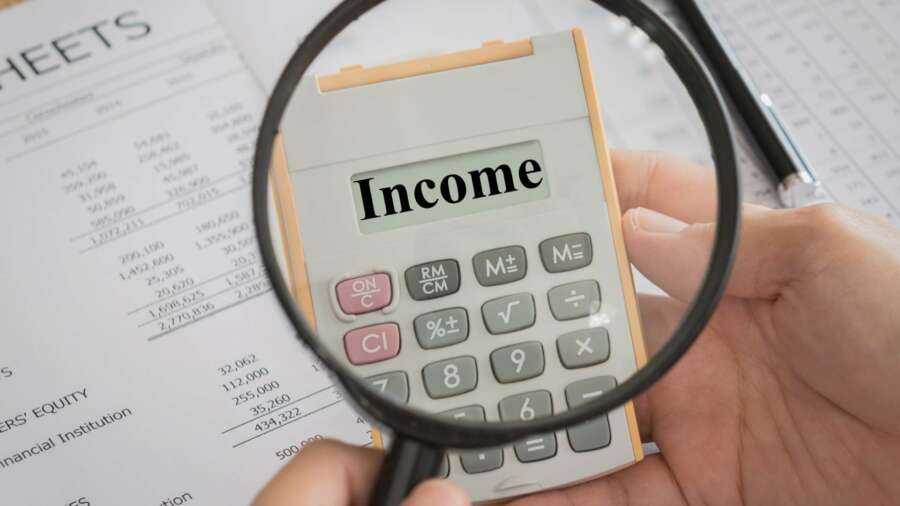
Introduction
- Understanding the Challenge of Debt on a Low Income
Debt can cast a shadow over even the brightest financial outlook, especially when faced with limited income resources. Learning to navigate this challenge is essential for achieving financial stability.
- Importance of Financial Health
Financial health is a cornerstone of overall well-being. It affects your stress levels, relationships, and future prospects. Overcoming debt on a low income might seem daunting, but it’s an empowering step toward securing a brighter financial future.
Assess Your Financial Situation
- Calculate Total Debt
Begin by compiling a comprehensive list of all your debts, from credit card balances to student loans. Understanding the exact scope of your debt is the first step in tackling it.
- List All Income Sources
Take stock of every income stream, no matter how small. This could include your primary job, freelance work, or even a small side hustle. Every penny counts.
- Analyze Essential Expenses
Separate your expenses into two categories: essentials and discretionary. Essentials include housing, groceries, utilities, and transportation. Understanding these core expenses helps you prioritize them.
- Identify Discretionary Expenses
Highlight areas where you can trim your spending. Be it eating out less, canceling unused subscriptions, or cutting back on entertainment, these changes can significantly impact your budget.
Create a Realistic Budget
- Prioritize Essential Expenses
Ensure that your essentials are covered before anything else. This prevents you from falling further into debt.
- Trim Unnecessary Spending
Review your discretionary expenses and make cutbacks where possible. Redirect these funds toward your debt repayment plan.
- Allocate Funds for Debt Repayment
Set a portion of your budget specifically for paying off debt. Even a small amount can make a significant difference over time.
Minimize Expenses
- Cut Down on Discretionary Spending
Limit your impulse purchases and evaluate every non-essential expense. This discipline will accelerate your journey toward financial freedom.
- Reduce Utility Bills
Explore ways to reduce your utility bills, such as conserving energy or renegotiating service plans. Every dollar saved helps alleviate your debt burden.
- Explore Cost-Effective Transportation
Consider using public transportation, carpooling, or biking instead of relying solely on your car. Transportation costs can often be a substantial part of your expenses.
Increase Your Income
- Look for Additional Part-Time Jobs or Freelancing Opportunities
Supplementing your income with part-time work or freelance gigs can provide a much-needed boost to your financial resources.
- Develop New Skills for Better Job Prospects
Investing in your skills can open doors to higher-paying job opportunities. Online courses and workshops are accessible and affordable ways to upskill.
- Leverage the Gig Economy
Platforms that offer gig opportunities, like ride-sharing or freelance writing, allow you to earn extra income on your terms.
Prioritize and Strategize Debt Repayment
- Snowball Method: Paying Off Smaller Debts First
Start by tackling your smaller debts while making minimum payments on larger ones. The sense of accomplishment from paying off a debt will motivate you to keep going.
- Avalanche Method: Tackling High-Interest Debts
Focus on debts with the highest interest rates, as they cost you more in the long run. Prioritize these to minimize interest payments.
- Negotiating with Creditors for Lower Interest Rates
Reach out to your creditors and explore the possibility of negotiating lower interest rates. This can significantly ease your repayment burden.
Explore Debt Consolidation and Refinancing
- Consolidation Loans
Consolidating multiple debts into a single loan can simplify your repayment process and potentially lower your interest rates.
- Balance Transfer Credit Cards
Transferring high-interest credit card balances to a card with a lower interest rate can save you money and make repayment more manageable.
- Refinancing Options
If you have high-interest loans, consider refinancing them to secure a lower interest rate, reducing your overall repayment obligation.
Seek Financial Assistance and Counseling
- Government Assistance Programs
Check if there are government programs or subsidies available to assist individuals with low income and debt.
- Non-Profit Credit Counseling Agencies
These organizations offer professional guidance and debt management plans tailored to your financial situation.
- Financial Education Resources
Equip yourself with knowledge about budgeting, debt management, and financial planning through online resources, workshops, or local community programs.
Build an Emergency Fund
- Importance of Emergency Savings
An emergency fund provides a safety net, helping you avoid taking on more debt in case of unexpected expenses.
- Setting Up a Small Emergency Fund
Start by saving a small amount each month until you have enough to cover a few months’ worth of essential expenses.
Avoid Taking on More Debt
- Break the Cycle of Borrowing
Resist the urge to take on new debt while you’re working to pay off existing obligations.
- Opt for Cash or Debit Instead of Credit
Paying with cash or debit ensures you only spend money you actually have, preventing further debt accumulation.
Stay Motivated and Persistent
- Celebrate Small Victories
Acknowledge and celebrate every milestone you reach in your debt repayment journey. It’s a testament to your hard work and determination.
- Focus on the Long-Term Benefits
Remind yourself of the financial freedom and peace of mind that await you once you successfully conquer your debt.
In the pursuit of financial freedom while facing the challenge of low income, the journey to overcome debt is both empowering and transformative. By carefully assessing your financial landscape, creating a realistic budget, and minimizing discretionary expenses, you take crucial steps toward regaining control. Increasing your income through part-time work or upskilling opens doors to brighter opportunities. Strategizing debt repayment using methods like the snowball or avalanche approach can lead to significant progress. Exploring options such as debt consolidation and seeking professional guidance adds valuable tools to your arsenal. Through perseverance, careful planning, and unwavering commitment, the path to debt-free living becomes a reality, offering a brighter and more secure future.


